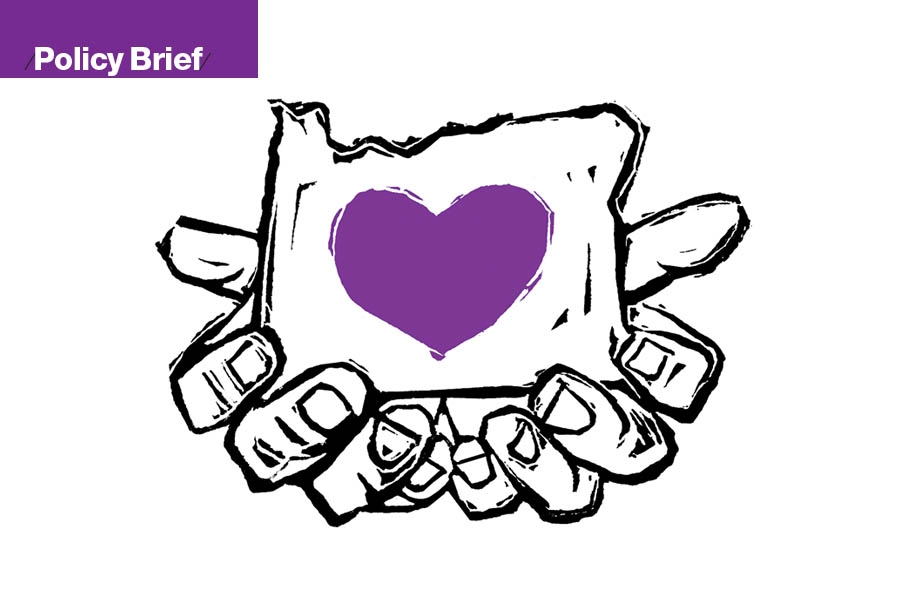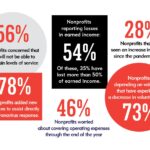Future budget cuts put critical nonprofit services at risk.
As the health, safety and now economic impacts of the coronavirus wreak havoc on our communities and economy, the nearly 22,000 charitable nonprofits across the state have been at the forefront of the response.
From the beginning of the COVID-19 pandemic and economic crisis, nonprofit organizations have been working tirelessly in our communities to support the missions and causes they serve.
Equally important to their responsiveness is the trust that community members have in these organizations to meet critical needs, address injustices, and bring beauty and joy to our lives.
In a recent poll commissioned by Independent Sector, nonprofits were shown to be trusted more than any other institution in society (i.e., government, business, and media), and only nonprofits were viewed as ethical. Relationships and trust are a hallmark of the nonprofit sector. They are our superpower.
As a consequence of COVID-19 and the resultant economic downturn, nonprofits are even more critical to our communities and are the very definition of frontline, essential workers.
Much of Oregon’s health care systems function as nonprofits, as do crucial services like food banks, mental health crisis counselors, and most of Oregon’s housing and homelessness services.
The results of federal programs that were created quickly means that confusion has been a mainstay of daily life for most in our sector. The rapidity of rollout was laudable, but the constantly changing goal posts of eligibility requirements, opening restrictions and partisan bickering have led to a stall before the November election.
The fiscal injections from the Coronavirus Aid, Relief, and Economic Security (CARES) Act channeled through the Paycheck Protection Program (PPP), as well as other COVID-19-specific financial support from government agencies, remain a mixed bag.
These programs come with compliance requirements that are extremely difficult for smaller community-based organizations to overcome, especially when they are dealing with the actual service provisions of the crisis day after day.
In a recent study that the Nonprofit Association of Oregon and our partners at Portland State University, Mercy Corps Northwest and ORVOAD (Oregon Voluntary Organizations Active in Disaster) conducted in June, we found that many nonprofit leaders have grave concerns about their organizations’ continued ability to serve their missions and provide services into next year.
The farther out in time we asked nonprofit leaders to project, the less certain they were for the future.
Some level of uncertainty is to be expected, but the types of services these organizations provide are too important to ignore for Oregon’s future.
Additionally, survey participants indicated that sharing real-time data about their nonprofits’ needs with funders, government officials and corporate leaders was ranked second as a priority for assistance required to enhance future resilience for nonprofits.
Advocating for the communities they serve is a critical function of the nonprofit sector, but this is an area where nonprofits need to do better. Less than half of the survey participants indicated they had communicated their needs to a state or federal legislative office since COVID-19 hit.
At the state level, the recent special sessions left little opportunity for community feedback or inclusion. While our legislators’ use of the state’s reserves to continue supporting some programs is laudable, it may not have gone far enough when we consider the ongoing crisis and the long-term impacts of the economic downturn.
As the governor and Legislature will be refining decisions on cuts to programs through the fall and into the next legislative session, it is critical that the warnings of Oregon’s nonprofit sector be heard.
As such, there are three critical messages our sector carries for state and federal policymakers:
1. See the bigger picture — We should never forget that people go unserved when there are not sufficient resources. The losses to nonprofit-earned revenues cannot withstand additional significant and long-term divestment by the government. People are hurt when programs are cut or underfunded.
2. Invest for the future — Cuts to program budgets may sound fiscally prudent, but they have been shown time and again to erode the capacity of services and cost more in the long run. The cuts to critical programs the state made as a result of the Great Recession have taken years to recover from and, in some cases, have never come back.
3. Build back better — Before COVID-19 hit, Oregon was already close to the bottom of the rankings for states on most major educational, human development and health indices (i.e., graduation rates, teen suicide, access to health care, homelessness).
We must use this opportunity to build a better support system for our communities. Nonprofits have that trust and relationship. Building back through their relationships and capacities would be fiscally prudent and more effective.
Nonprofits represent the best of our communities. Our relationships are deep, and communities trust our efforts. Our policymakers would do well to listen to what we have to say.
Jim White serves as the executive director of the Nonprofit Association of Oregon, the statewide nonprofit membership organization supporting charitable nonprofits across Oregon.
To subscribe to Oregon Business, click here.






